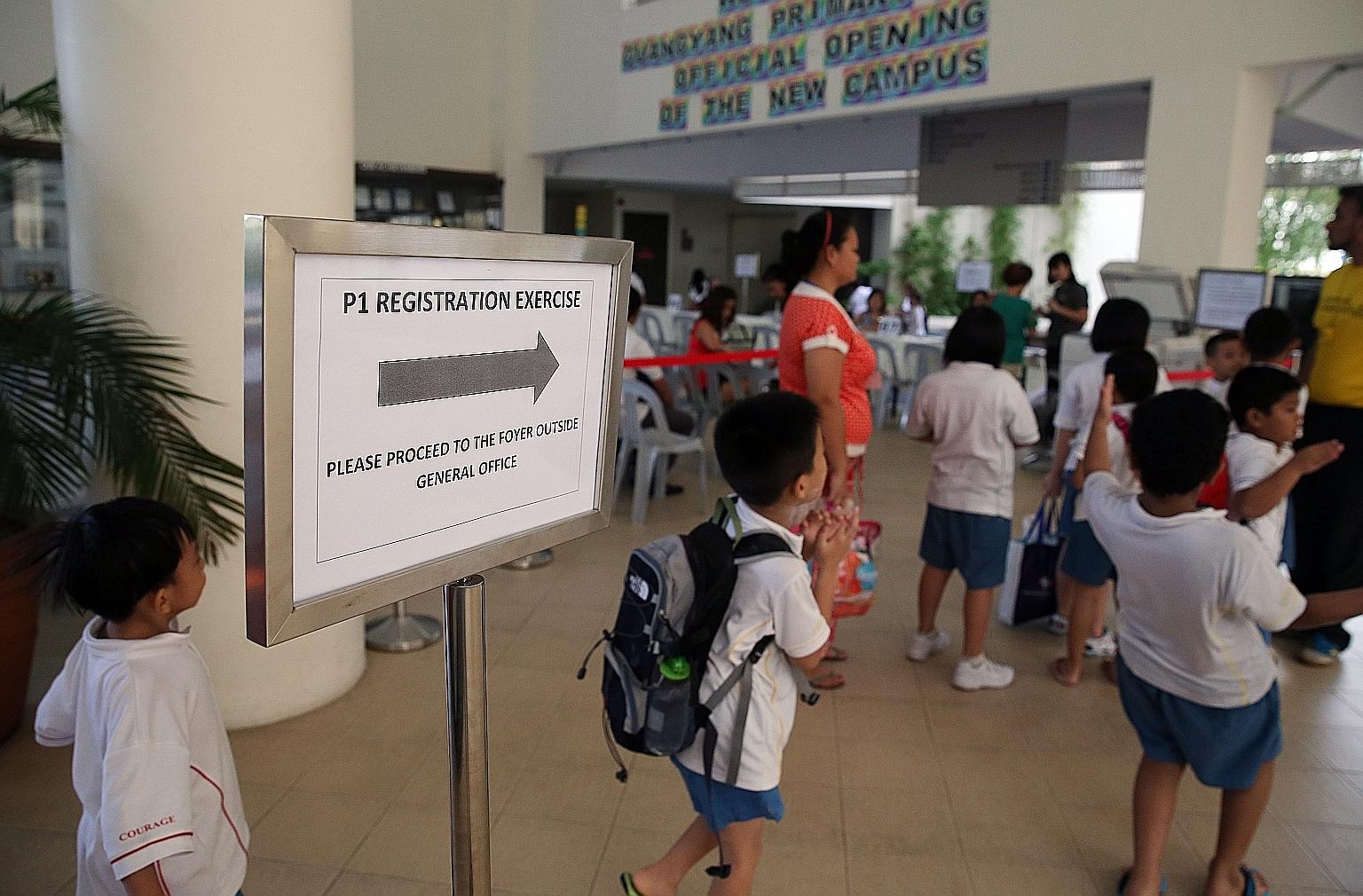Computerised balloting to ease P1 registration stress
Parents no longer have to go to schools for results but will be notified via text message
Sign up now: Get tips on how to help your child succeed

The Education Ministry said the new centralised process from this year will help to streamline Primary 1 registration and make it more convenient for parents. Those who need to ballot "are assured of an equal chance of admission into the school", said the ministry.
ST PHOTO: ONG WEE JIN
Follow topic:
Four years ago, Mrs Cheryl Wong and her daughter went through a ballot twice for a Primary 1 spot in Kong Hwa School in Geylang.
After two failed attempts, the girl cried in the car and asked why the school "did not want her".
Every year, parents gather in school halls waiting for news of their children's future in sought-after primary schools. But this large turnout, which has contributed to frayed nerves, will be a thing of the past, with computerised balloting replacing the manual exercise from this year. Parents will no longer need to go down to schools for the results.
Computerised balloting has been used for years in admission exercises to junior colleges and polytechnics, and in postings to secondary schools.
The Education Ministry (MOE) said the new centralised process will help to streamline Primary 1 registration and make it more convenient for parents.
Those who need to ballot "are assured of an equal chance of admission into the school", MOE said.
There are seven registration phases for Primary 1, and balloting is usually done when the number of applications for a particular school exceeds the vacancies at each stage. Those who live closer to the school - typically within 1km - get priority in the ballot.
From this year, parents will be notified on the same day via text message about the registration results and balloting outcome. They need to refer to the MOE website to find out which schools still need balloting at the end of each phase.
Mrs Wong welcomed the change, saying it takes away the inconvenience of having to physically attend the balloting sessions, and the stress of facing a room full of other parents.
"There is still the stress of getting into a school, but at least you don't have to face peer pressure," said the 39-year-old freelance designer. "As the names are being called out, and the number of seats shrink, you get more and more kan cheong (overly anxious in Cantonese). It wasn't just me, I could see other parents getting frustrated, especially those who did volunteer work," said Mrs Wong, whose daughter later secured a place in Haig Girls' School.
Ms Amanda Cho, 33, an operations manager whose daughter clinched a spot at Chongfu School through a ballot six years ago, said: "In the hall, it is very dramatic. It is like people striking Toto. There is cheering when a number is called, and a lot of disappointment, too."
Business owner Kam Sook Wei, 35, will be registering her son at Anglo-Chinese School (Junior) this year. She said: "It is a great idea to do balloting online as I hear from friends it is so stressful and tense for parents in the room... They can (now) cry at home."
Separately, from this year, international students will need to submit an "indication of interest" form online, along with their supporting documents.
This can be done on MOE's Primary 1 website from June 5 to 11, which is ahead of the actual Primary 1 registration that begins in late June.
They will be notified in October by MOE whether they are eligible for a Primary 1 slot in a school, and must register in person at the designated primary school during Phase 3, which takes place in late October.
The ministry said it needs more time to process these applications because it has been receiving more applications from foreign students over the years.
It said that submitting an indi-cation of interest is not considered registration, and school admission for foreigners is not guaranteed as there are limited vacancies after places have been allocated to Singaporean and permanent resident children.

